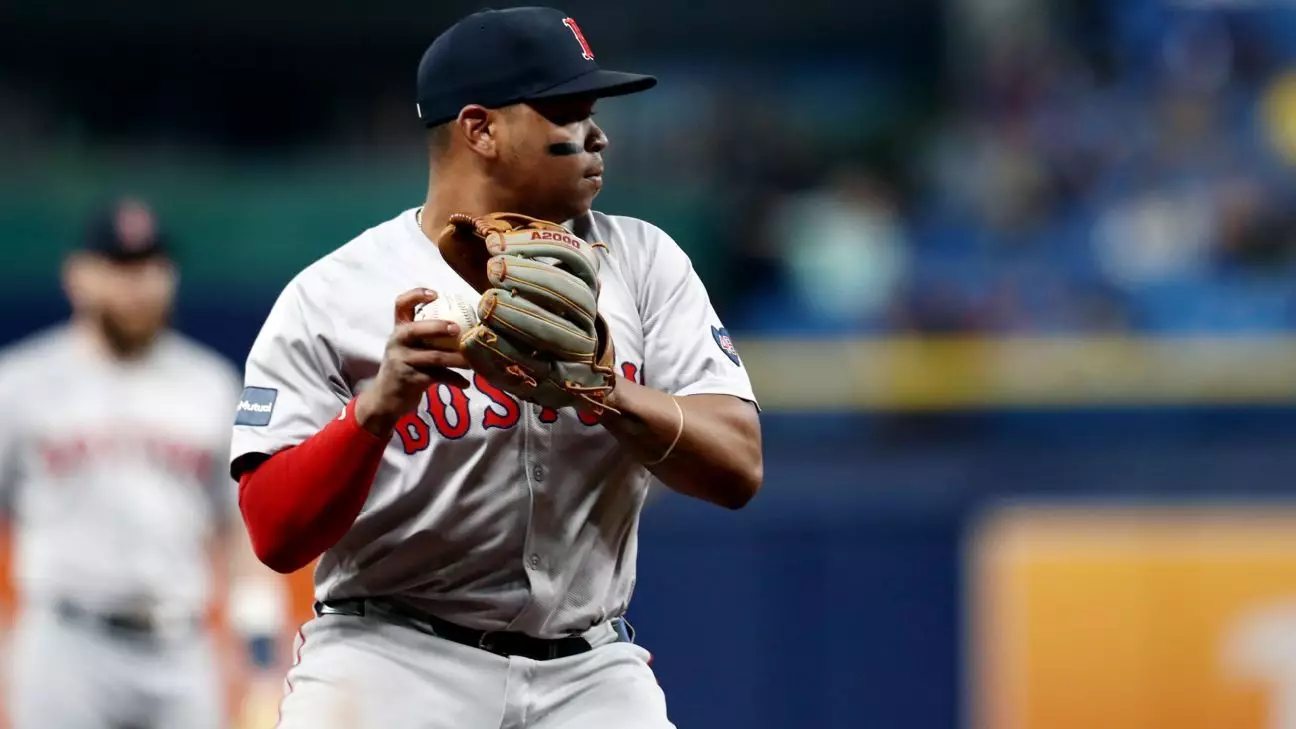The Boston Red Sox have stirred considerable buzz in the baseball world with their recent signing of Alex Bregman, a talented third baseman from the Houston Astros. However, this acquisition has not come without its complications, particularly concerning Rafael Devers, a three-time All-Star who has firmly established himself as the team’s incumbent at third base since 2017. As the team navigates this new landscape, Devers has made it abundantly clear that he has no intention of vacating his position, adding layers of intrigue to the off-season narrative.
Rafael Devers has emerged as a cornerstone of the Red Sox lineup, particularly after signing an impressive 11-year, $331 million contract in January 2021. His performance underscores his importance to the team. Last season, Devers hit 28 home runs and drove in 83 runs, showcasing his power and consistency despite being constrained to just 138 games due to injuries. In contrast, Bregman’s achievements, including multiple All-Star appearances and a recent Gold Glove Award, inevitably raise questions about the implications of his signing for Devers.
During a press conference, Devers expressed his dissatisfaction regarding conversations around his position, saying, “Third base is my position. It’s what I play.” This statement reflects not only his determination to remain in his current role but also the intertwining pressures of individual desire within the broader context of the team’s strategy. Even more strikingly, when confronted with the possibility of transitioning to a designated hitter role, Devers responded with a resolute “no,” indicating his unwillingness to adapt to a situation that might undermine his value and identity as a player.
Adding another layer of complexity is the leadership dynamic within the Red Sox organization. Not only has Devers made his feelings known, but he has also communicated his sentiments to chief baseball officer Craig Breslow and manager Alex Cora. Devers described his surprise at the prospect of discussions about position changes, emphasizing the challenges of balancing personal aspirations with corporate decisions. “I’m someone that believes in people’s word,” he noted, which suggests that trust plays a significant role in player-management relations.
Cora, for his part, recognizes the sentiment within the locker room and has emphasized the collective goal of creating the best team possible. However, he has also acknowledged that the team needs to consider various strategies for roster construction. The prospect of Bregman playing either second or third base complicates the situation further, particularly as the team weighs the potential inclusion of emerging talent such as Kristian Campbell, who could impact the infield dynamics significantly.
At the heart of this controversy lies a critical question: How will the Red Sox effectively balance individual player agreements with the overarching need for a cohesive and competitive roster? Cora iterated that “the decisions we make are for the benefit of the team,” highlighting that personal ambitions must sometimes yield to collective objectives. Yet, the tension between Devers and the front office over the handling of this transition signals a potential rift that could affect team morale.
Moreover, Devers’ vocalization of his discomfort and the team’s apparent mishandling of communication around this issue could resonate throughout the player community. Professional athletes often weigh their worth in terms of both financial investment and perceived value on the field, and Devers’ case illustrates the importance of recognizing each player’s significance—not merely as a statistic but as a critical element of team chemistry and success.
In the face of high-stakes decisions and changing roles, the Red Sox will need to navigate the complexities of their player dynamics carefully. Devers’ steadfastness and Bregman’s arrival underscore the evolving landscape of Major League Baseball, where talent acquisition can lead to difficult discussions about player roles. As the season approaches, the Red Sox must prioritize clear communication and mutual respect to ensure that they can harmonize individual ambitions with team strategies, fostering an environment where both the organization and its stars can thrive. The decision regarding who occupies third base may ultimately define not only the structure of the infield but also the future trajectory of a franchise that has faced challenges in recent years.

